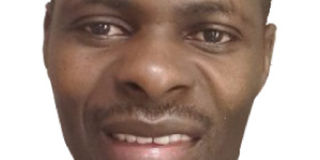Problem with judging Africa using Western standards

What you need to know:
Wrong construction. The construction of Africa as an aberration goes back a long time in history and has become deeply entrenched. The army of analysts, experts and specialists who have presented the ‘truth’ about the continent is legion.
What is the African story? This question came up yet again last week. A Ugandan journalist won a prestigious BBC award. In an interview about the award, he spoke of the need for Africans to tell the African story. But what’s it?
No other part of the world has been represented and misrepresented with big brush strokes of, especially negative portrayal, as the African continent. The Western media and academia have tended to define Africa by its problems and not its prospects, through caricatures and not accurate depictions.
It is common for a major Western media outlet to open its reportage on an African country by evoking that country’s poverty, violence, corruption, lawlessness, lack of water and electricity, etc. Seldom will the reporting start off by flagging such positive attributes as peaceful, beautiful, productive, hospitable, socially progressive or politically stable conditions.
The construction of Africa as an aberration goes back a long time in history and has become deeply entrenched. The army of analysts, experts and specialists who have presented the ‘truth’ about the continent is legion.
The influential German philosopher, Friedrich Hegel, was among the earliest ‘authorities’ to comment on Africa – he claimed that Africa was not a historical part of the world; it had no history and had no states.
Since at least the days of Hegel, what we can loosely refer to as the early modern period in Europe, the trend has been to see Africa through the lens of Europe such that whatever Europe is, supposedly tells us what Africa is not and what is considered African is what is not European.
That was the template used by explorers, missionaries, colonial officials, researchers and journeymen. It is what has remained the mainstay in our times, from self-anointed development specialists to wannabe humanitarian workers, the media, study-abroad students and academics seeking a career out of a continent that has to be necessarily presented to Western audiences strictly in negative terms. Both non-Africans and Africans.
In early 2012, as Libya’s Muammwar Gaddafi was being bombed out of power, literally, I lamented to a colleague in graduate school at Northwestern University, Chicago, about how rulers like Gaddafi do things that hurt rather than help an otherwise endowed country. His reaction was that, in fact, what Gaddafi and others do is good for him and me as academics: We will make careers out of the mess unleashed or perpetuated by an autocratic ruler. I felt, in the least, scandalised by such a cynical suggestion. Yet that’s precisely the rule than the exception among Western academics and self-appointed experts in the media, NGOs, financial institutions and diplomatic missions. They are always searching and constructing the African problem to present to Western audiences to make careers.
I could go on with this, but here is the crux of the matter: For many in the West and on the African continent, including Africans, Africa cannot be perceived and analysed on its own terms and in its own right. It has to be analysed using alien standards.
Yet it is seldom that the West is evaluated and presented through the prism of African value systems and norms. I have had the modest advantage of living for extended periods on three different continents: Africa, Asia and North America. I also know a bit of continental Europe. I have one simple conclusion: Every country and continent has its own problems.
There are ways of life and standards of public conduct in Europe and North America that would be considered economically outrageous and morally unacceptable if viewed from an African perspective. The United States of America, the world’s most powerful nation, has an endemic gun violence problem. But no one reports about America, or presents it, as defined by gun violence where mass shootings have become quite routine.
So, what’s Africa’s story that needs to be told? There is no single African story. There are countless stories, good and bad, breath-taking and heart-breaking, new and old, progressive and perilous, overwhelming and underwhelming.
But whether told by Africans or foreigners, any African story, be it of hope or tragedy, must be presented from an African angle and not using a European template. There is no gain saying the enormous problems and endemic ills afflicting most African countries.
In the same vain, there is no part of the world that is heaven, assuming heaven is the place without a modicum of problems.
Dr Khisa is assistant professor at North Carolina State University (USA).
[email protected]


